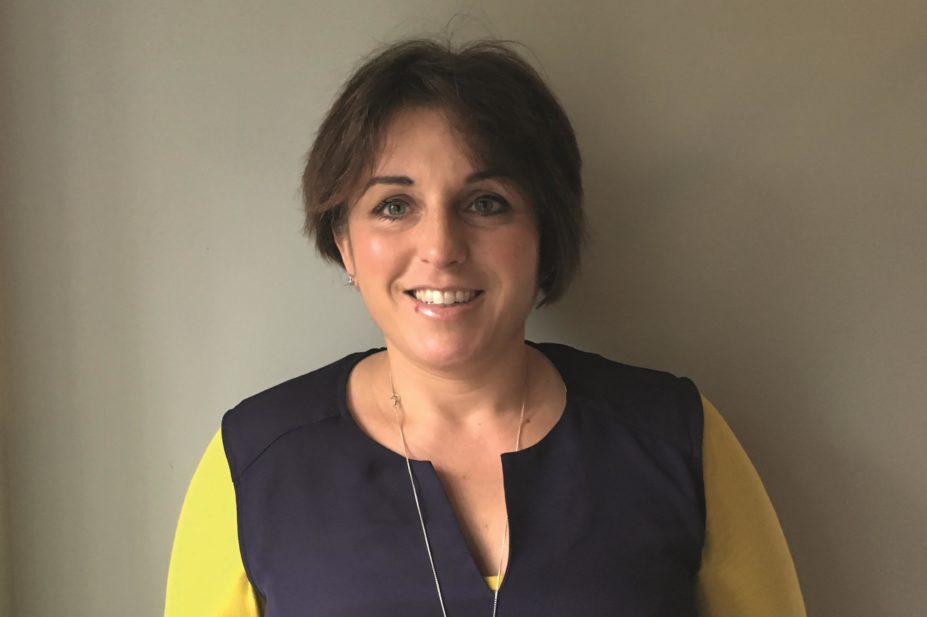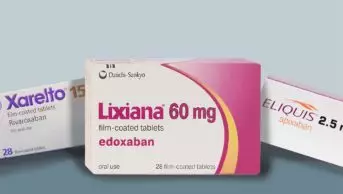
Sharron Gordon
Sharron Gordon is a consultant pharmacist in anticoagulation at Hampshire Hospitals NHS Foundation Trust and a Faculty fellow of the Royal Pharmaceutical Society (RPS).
What is your current role and how did you get there?
I develop anticoagulation services within the Hampshire Hospitals NHS Foundation Trust and improve the delivery of anticoagulation treatment in patients with atrial fibrillation (AF) through a lead clinical role at the Wessex Academic Health Science Network (AHSN) with a consultant haematologist and a project manager. The Wessex AHSN covers an area of ten clinical commissioning groups.
Jobs like mine did not exist when I first qualified. Pharmacists going into senior posts often became chief pharmacists (within a hospital) or took on superintendent pharmacist or other managerial roles in community. Consultant pharmacist posts were introduced ten years ago and, at that stage, the career pathway was less obvious.
It is still not always clear what level of management expertise one needs before becoming a consultant pharmacist. I came from a deputy chief post to this role because I have a passion for improving patient care in anticoagulation and I missed the patient contact of previous clinical roles.
In my first year, I concentrated on building a network and collecting baseline data. We have already seen positive changes in the past 12 months, including increased prescribing of anticoagulation medicines across the region and reduced variation in patients who are excluded from accessing anticoagulation medicines.
What do you do in a typical day?
I try to keep a fairly strong national presence to support change from both the top and the bottom so I hold a range of national posts, such as chair of the UK Clinical Pharmacy Association’s Haemostasis Anticoagulation and Thrombosis group, a place on the medical board of Anticoagulation Europe and a member of the NHS England Venous Thromboembolism Board.
At regional level, increasing and developing new anticoagulant activity across Wessex is exciting. I run teaching sessions for GPs, nursing staff and community pharmacists, discuss project plans with the AHSN, meet stakeholders across the area and problem solve to try to progress care. This is complemented by shuffling large amounts of paper around my desk and virtually via emails as I try to develop project plans, keep records of work and find links between projects being done in different areas to support collaboration. I remain committed to seeing growth in the numbers of new medicine service reviews done within Wessex for anticoagulation and antiplatelets.
Significant income is generated by the routine monitoring of warfarin. If, through a concordant prescribing process, the patient choses a direct oral anticoagulant, which requires less monitoring, how is the funding gap managed?
What do you find most interesting about your job?
There is nothing is better than working with one single patient in a clinic appointment. All other pressures disappear and you simply get a privileged insight into an individual’s life and an opportunity to influence them holistically. This can also test my negotiation abilities.
I recently saw an older male patient who was fit and well (other than his AF) and had been started on bisoprolol, amiodarone and apixaban to manage his heart rate and to reduce his risk of AF-related stroke. My mission on his anticoagulant review was to see how he felt about not having anticoagulation i.e. stopping his apixaban given the likely increased sensitivity he would have to anticoagulants at his age. However, he arrived with a cut head, walking with support, and his son told me that he cannot stand easily since his recent hospital admission. I decided to check his blood pressure and heart rate. It was desperately low — half its usual measurement — so I had to admit him directly to A&E.
What might other people find surprising about your role?
Driving change and getting your voice heard takes a lot of time, effort and personal investment. I have to work flexibly, which includes attending national meetings and generally ‘flying the flag’ for the organisation at regional events. These are important parts of the role but are not directly part of my job description. Having a strong and supportive network is important and I am lucky to have found this. This network is especially important to me as a woman in a senior role with two young children and a husband who runs his own company. Balancing work with home life can be a challenge.
What one change could make your role easier?
I would eliminate all the funding pockets that limit our ability to provide the right care to the patient in the right location for them. The NHS is tied up in knots over where funding sits and this stops us from progressing. For example, in anticoagulation there is a belief that large parts of patient care should move to the community — but hospitals would lose an income stream. How do the new pathways fit together so the right patients with complex needs get to see specialist staff and how do we get the funding to follow those specialists to the community? It is equally true when we look at the use of warfarin within anticoagulant clinics. Significant income is generated by the routine monitoring of warfarin. If, through a concordant prescribing process, the patient choses a direct oral anticoagulant, which requires less monitoring, how is the funding gap managed?
What tips would you give a pharmacist hoping to pursue a career in your role?
It is important to have good, general level training and not seek promotion too early. Regular self-assessment against the RPS foundation and advanced practice framework will help you to understand your learning needs.
I would also advise having a variety of mentors and taking every opportunity to work with senior staff to learn how they work, deciding what you aspire to adopt in your own activity and what you don’t. It is important that you take ownership for your own career.


